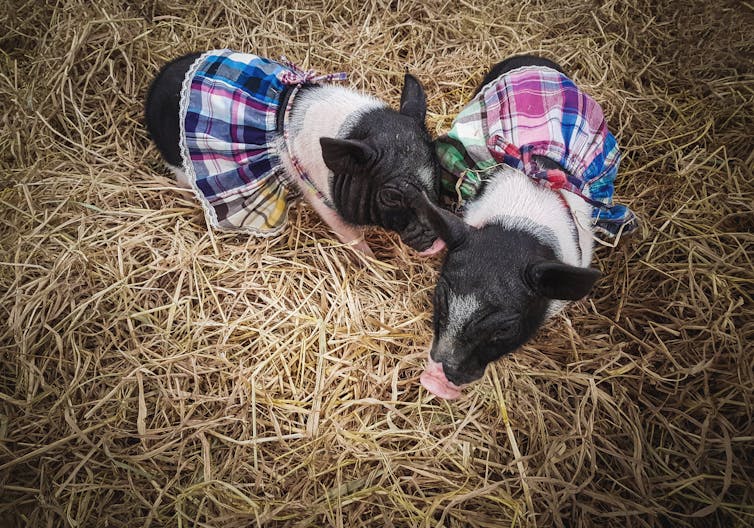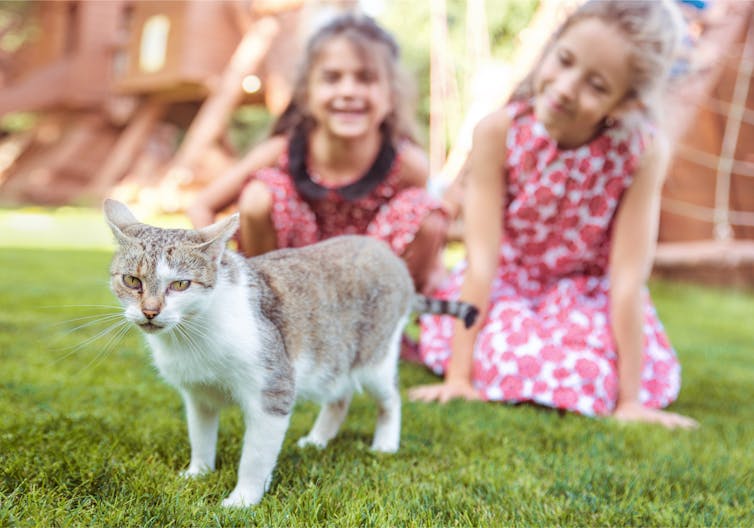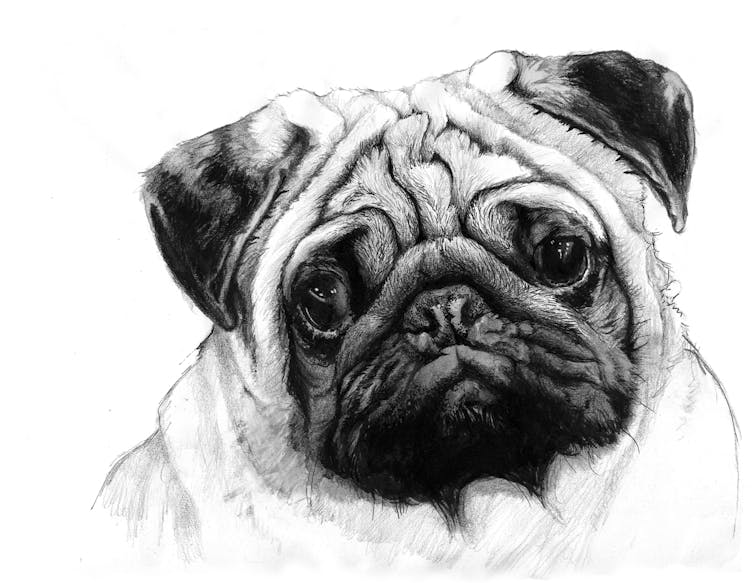Are There People Who Don't Like Animals?
The contempo popularity of "designer" dogs, cats, micro-pigs and other pets may seem to advise that pet keeping is no more than than a fad. Indeed, it is often assumed that pets are a Western affectation, a weird relic of the working animals kept past communities of the past.
Most one-half of the households in Britain solitary include some kind of pet; roughly 10m of those are dogs while cats brand upwards another 10m. Pets cost time and coin, and nowadays bring picayune in the way of material benefits. But during the 2008 financial crunch, spending on pets remained almost unaffected, which suggests that for most owners pets are not a luxury but an integral and deeply loved part of the family.
Some people are into pets, notwithstanding, while others but aren't interested. Why is this the case? It is highly likely that our want for the company of animals actually goes dorsum tens of thousands of years and has played an important part in our development. If and so, then genetics might help explain why a honey of animals is something some people merely don't get.

The health question
In contempo times, much attention has been devoted to the notion that keeping a dog (or possibly a cat) can benefit the owner's wellness in multiple ways – reducing the risk of heart disease, combating loneliness, and alleviating low and the symptoms of low and dementia.
As I explore in my new book, there are two problems with these claims. First, there are a similar number of studies that propose that pets accept no or even a slight negative touch on health. 2nd, pet owners don't live whatever longer than those who accept never entertained the idea of having an animal about the house, which they should if the claims were true. And even if they were real, these supposed health benefits only apply to today'southward stressed urbanites, not their hunter-gatherer ancestors, so they cannot exist considered as the reason that we began keeping pets in the commencement place.

The urge to bring animals into our homes is so widespread that it's tempting to call back of it as a universal characteristic of human being nature, but not all societies have a tradition of pet-keeping. Even in the Westward there are plenty of people who feel no particular analogousness for animals, whether pets or no.
The pet-keeping habit often runs in families: this was one time ascribed to children coming to imitate their parents' lifestyles when they leave home, only recent enquiry has suggested that it also has a genetic ground. Some people, any their upbringing, seem predisposed to seek out the company of animals, others less so.
So the genes that promote pet-keeping may be unique to humans, just they are non universal, suggesting that in the past some societies or individuals – just not all – thrived due to an instinctive rapport with animals.

Pet DNA
The DNA of today's domesticated animals reveals that each species separated from its wild analogue between 15,000 and five,000 years ago, in the late Palaeolithic and Neolithic periods. Aye, this was also when we started convenance livestock. Simply it is not easy to come across how this could have been achieved if those kickoff dogs, cats, cattle and pigs were treated every bit mere commodities.
If this were and so, the technologies available would have been inadequate to forestall unwanted interbreeding of domestic and wild stock, which in the early stages would take had ready access to one another, endlessly diluting the genes for "tameness" and thus slowing further domestication to a clamber – or even reversing it. Also, periods of dearth would as well accept encouraged the slaughter of the breeding stock, locally wiping out the "tame" genes entirely.
But if at least some of these early on domestic animals had been treated as pets, concrete containment within man habitations would accept prevented wild males from having their mode with domesticated females; special social status, as afforded to some extant hunter-gatherer pets, would have inhibited their consumption as food. Kept isolated in these ways, the new semi-domesticated animals would have been able to evolve away from their ancestors' wild ways, and become the pliable beasts we know today.

The very same genes which today predispose some people to take on their kickoff cat or canis familiaris would have spread among those early farmers. Groups which included people with empathy for animals and an understanding of animal husbandry would have flourished at the expense of those without, who would have had to continue to rely on hunting to obtain meat. Why doesn't everyone feel the same way? Probably considering at some point in history the alternative strategies of stealing domestic animals or enslaving their man carers became feasible.
There's a last twist to this story: recent studies accept shown that affection for pets goes mitt-in-manus with concern for the natural world. It seems that people can be roughly divided into those that feel picayune affinity for animals or the environment, and those who are predisposed to delight in both, adopting pet-keeping every bit ane of the few available outlets in today's urbanised club.
As such, pets may help united states to reconnect with the earth of nature from which we evolved.
Source: https://theconversation.com/the-science-behind-why-some-people-love-animals-and-others-couldnt-care-less-84138
Posted by: kittrellkitn1938.blogspot.com

0 Response to "Are There People Who Don't Like Animals?"
Post a Comment